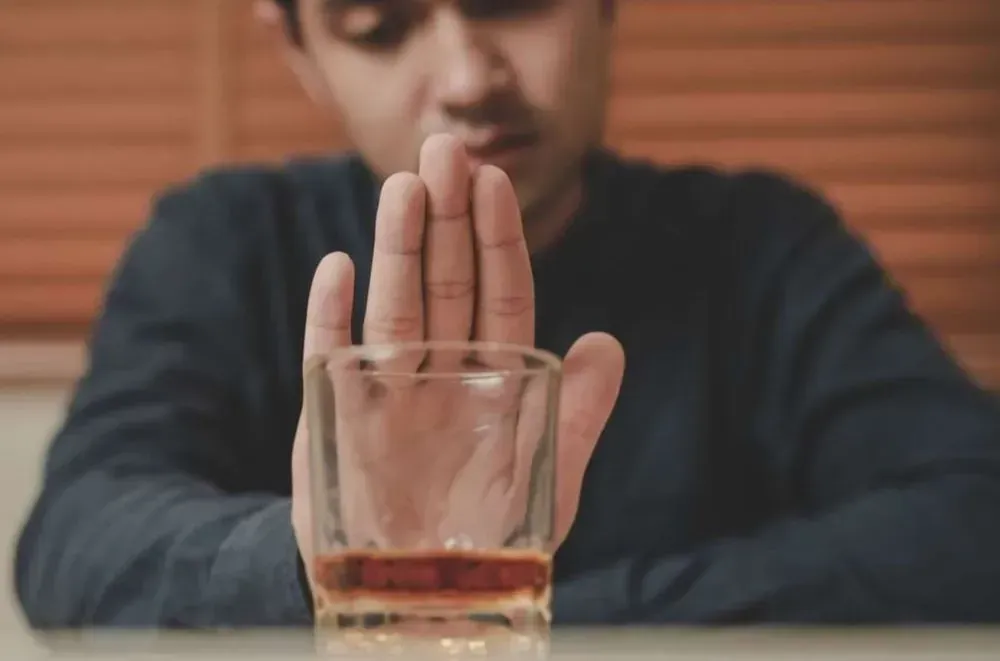The Ministry of Health gave practical advice on how to help a loved one overcome alcohol addiction
Kyiv • UNN
Every fifth Ukrainian has experienced alcohol addiction among their loved ones, such as family, friends or colleagues, and the Ministry of Health advises how to help their loved ones overcome this disorder.

Alcohol seriously affects the life of a person and his environment, according to some sources, every 5 Ukrainians faced an alcohol disorder in their environment. This is reported by the Ministry of Health, writes UNN.
Alcohol use disorder is a condition in which a person's ability to quit or control alcohol consumption is impaired, despite serious health consequences, problems in social life and at work.
This condition can be mild, moderate, or severe, depending on several factors. This includes, in particular, the age at which a person started drinking alcohol, the types of alcoholic beverages they consume, the frequency and amount of alcohol consumed, and the family history of alcohol use.
According to the results of a national study conducted by the Ukrainian Institute for the future and new image Marketing Group on the topic "determining the scale of drug and alcohol addiction. Social consequences", it turned out:
every fifth Ukrainian has experienced an alcohol disorder among their closest friends-family, relatives, friends, neighbors or colleagues.
The Ministry of Health has provided diagnostic criteria for substance use disorder, including various aspects that addiction can affect personal relationships. In particular, people with alcohol addiction often:
- unable to fulfill their obligations or bear responsibility in their relations with their partner, children and other relatives;
- risk losing or losing their job due to their addiction;
- avoid social meetings and hobbies;
- endanger the lives of others, for example, by driving under the influence of alcohol, caring for small children, or using gas appliances;
- under the influence of alcohol, they may show aggression or resort to violence;
- spend family or credit funds on alcohol.

How to behave to relatives and friends of a person with alcohol addiction:
- Stop denial: because of the stigma in society, relatives often feel ashamed of the situation, sometimes blame themselves, do not discuss the problem, and are afraid of public attention, which prevents them from seeking help. It is important to recognize that a loved one has a problem with alcohol and actively look for ways to solve it.
- Stop playing the role of a savior: it is important to avoid solving problems for a person suffering from addiction, such as covering up absenteeism at work or paying off their debts or loans.
- Choose the right moment to talk: it is necessary to choose the right time to discuss the problem with a person who has an alcohol addiction, preferably shortly after incidents caused by their behavior, ensuring that they are sober during the conversation.
- Speak concretely and without emotion: it is important to accurately and calmly express specific examples of how a person's behavior creates problems for you, others, or herself. Focus not on the fact of drinking alcohol, but on the behavior it causes. Emphasize that your goal is to help, not blame.
- Talk about the consequences for the family: according to a 2014 study, children from families where at least one parent drinks alcohol are more likely to be abused and seek social help than their peers. They are also prone to alcohol abuse.
- Know what you will do if the addict refuses treatment, and inform them in advance, not for the purpose of punishment, but to protect yourself and others from the negative consequences of alcoholism.
- Be prepared to help: seeking professional help can be crucial for a person's health. Get acquainted with the available specialists (you can start with your family doctor or call the hotline of the Ministry of Health 0 800 505 201) and tell your loved one about it. If she agrees to treatment, make an appointment with a specialist.
- Accompany her to her first meeting to support her and make sure she doesn't change her mind.
- Involve loved ones and relatives: invite relatives or friends who have overcome alcohol addiction to share their experience with a person in need of treatment.
- Stories of successful recovery can inspire and strengthen faith in the possibility of recovery. It is important that family, friends, colleagues, and health professionals actively support a person on the road to recovery, as this increases their chances of success.
It is important to remember that an alcohol use disorder is a health disorder similar to cancer, arthritis, or diabetes, and people with this condition are not weak or devoid of self – control. Accusations of lack of willpower, character traits, or guilt do not contribute to recovery, but only lead to isolation and complicate the recovery process. Knowledge of the cause of the disease, understanding its consequences and treatment methods contributes to destigmatization, that is, to the fact that people with alcohol addiction should be treated with understanding, and not condemned. It is the understanding and support of loved ones that gives them hope and encourages them to be treated for this disease
recall
The Ministry of health of Ukraine has amended the requirements for certification of domestic medicines for international trade and confirmation of active pharmaceutical ingredients for export, following WHO recommendations.